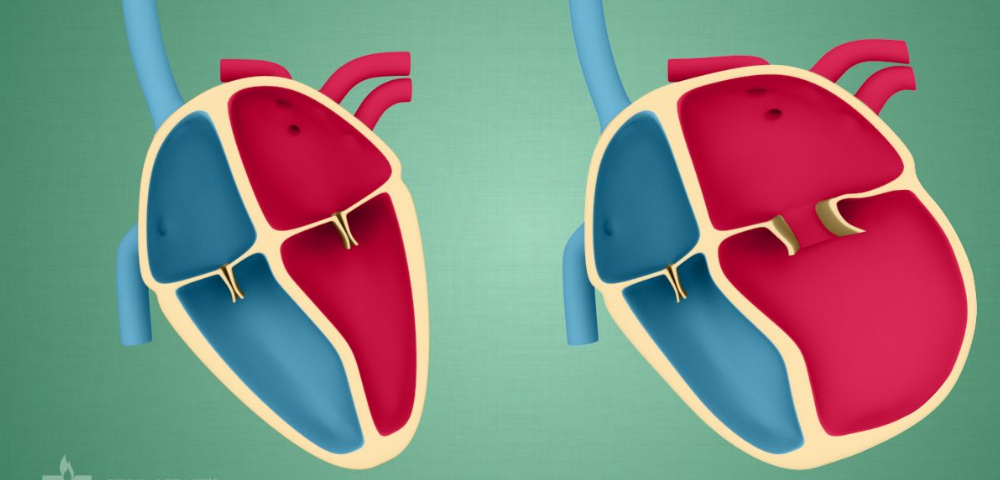- 05/02/2025
- by Dr. Akshay Kashid
- Latest Blog
Cardiomyopathy is a major heart disease that affects your heart’s muscle, therefore making it difficult for it to pump blood and convey oxygen throughout your body. Unless treated promptly, this condition often leads to heart failure, arrhythmias, and other complicating issues. Dr. Akshay Kashid, a cardiologist specialist in Baner, Pune, has extensive experience in diagnosing and treating cardiomyopathy conditions and makes his patients understand the scope of impact and how the condition may be managed effectively.
What is Cardiomyopathy?
Cardiomyopathy is diseases of the heart muscle that make it more difficult for the heart to pump blood effectively. The heart may become enlarged, thickened, or stiffened, which makes it less functional. Cardiomyopathy comes in a variety of types, each of which has different causes and implications. Some of the most known types include:
Dilated Cardiomyopathy: The heart becomes enlarged and weakened with reduced blood flow.
Hypertrophic Cardiomyopathy: The muscle of the heart becomes thicker and increases resistance to blood pumped by the heart.
Restrictive Cardiomyopathy: The heart becomes stiff and does not accept blood normally.
Arrhythmogenic Right Ventricular Cardiomyopathy (ARVC): A less common type of cardiomyopathy that affects the electrical conduction system of the heart and may result in arrhythmias.
Cardiomyopathy is hereditary in some cases but can also result from other causes, including high blood pressure, heart attacks, viral infections, or alcohol abuse. The well-qualified cardiologist specialist, Dr. Akshay Kashid, at Baner, Pune, is willing to work with patients to discover the source of their condition and help find the appropriate treatment.
How Cardiomyopathy Affects Your Heart
Cardiomyopathy weakens the heart muscle, which results in several complications:
Impaired heart function is another aspect in which the body does not get sufficient oxygen and nutrients because of a failing heart. In such a condition, one experiences symptoms like fatigue, shortness of breath, and swelling in the legs and abdomen.
Heart Failure: Over time, the weakened heart may lead to heart failure, where the heart is unable to pump blood effectively to the body. This can result in fluid accumulation in the lungs, leading to difficulty breathing and shortness of breath, especially during exercise or at night.
Arrhythmias: Cardiomyopathy can cause disarray in the heart’s electrical system, leading to arrhythmias, abnormal heart rhythms. Such arrhythmias can be fatal if left untreated, causing dizziness, fainting, and even sudden cardiac arrest.
Blood Clots: The abnormal function of the heart due to cardiomyopathy also increases the chances of developing blood clots within the heart that can travel to other parts of the body, which might cause strokes or other life-threatening complications.
Symptoms of Cardiomyopathy
Cardiomyopathy, in its early stages, may not show any symptoms. However, as the condition progresses, common symptoms include the following:
Fatigue and weakness
Shortness of breath, especially during physical activity
Swelling in the legs, ankles, or abdomen
Dizziness or lightheadedness
Fainting or feeling faint
Rapid or irregular heartbeats
If you experience any of these symptoms, it’s crucial to seek the expertise of a cardiologist specialist in Baner, Pune, like Dr. Akshay Kashid, who can provide a thorough evaluation and help you manage the condition effectively.
How to Manage Cardiomyopathy
Cardiomyopathy management is usually a combination of lifestyle modification, medications, and in some cases, medical interventions. According to Dr. Akshay Kashid, the approach taken is always customized to the individual based on the severity and type of the disease.
1. Lifestyle Changes
Dietary Changes: The patient needs to eat a heart-healthy diet, rich in fruits, vegetables, whole grains, and lean proteins. Salt intake needs to be limited as it reduces fluid retention and lowers blood pressure, both of which are good for the heart.
Exercise: Exercise strengthens the heart muscle and improves cardiovascular health. However, this should be done after consulting with your cardiologist to ensure that the exercise is safe.
Weight Management: Maintaining a healthy weight can reduce the pressure on the heart and alleviate symptoms.
Quit Smoking and Limit Alcohol: Smoking and excessive alcohol consumption can worsen the condition, and quitting smoking and limiting alcohol intake is important in managing cardiomyopathy.
Medications Various types of medications may be prescribed to help manage cardiomyopathy, including:
Beta-blockers: These drugs tend to slow the heart rate and lower blood pressure, thus easing the workload on the heart.
ACE inhibitors or ARBs: These drugs help relax blood vessels, thereby lowering blood pressure and reducing the workload on the heart.
Diuretics: These drugs help reduce fluid buildup in the body, especially in the lungs and legs.
Anticoagulants: If there is a risk of blood clots, blood-thinning drugs are prescribed to prevent clotting.
Medical Procedures
ICD: For patients with potentially life-threatening arrhythmias, an ICD might be implanted to monitor rhythms and deliver shocks if needed in order to restore normal rhythm in the heart. Pacemaker: Pacemaker may be recommended in case arrhythmias seem to be a concern because pacemaker regulates the electrical activity in the heart.
Surgery: In some cases, surgery may be required to correct or replace damaged heart valves or to implant a heart pump (ventricular assist device) to assist the heart in pumping blood more effectively.
- Regular Monitoring Ongoing monitoring by a cardiologist specialist in Baner, Pune, like Dr. Akshay Kashid, is crucial for tracking the progression of cardiomyopathy. Regular heart check-ups, including echocardiograms and stress tests, help ensure that the condition is being managed effectively and allow for adjustments in treatment as needed.
When to See a Cardiologist
If you go through any of the symptoms of cardiomyopathy or have a history of heart disease in the family, then it would be wise to schedule a consultation with a cardiologist specialist like Dr. Akshay Kashid. Early diagnosis can improve the outcome and save from complications like heart failure and arrhythmias.
Summary
Cardiomyopathy is a serious condition that affects the heart’s ability to pump blood effectively, but with the right management, it can be controlled. Dr. Akshay Kashid, a trusted cardiologist specialist in Baner, Pune, offers comprehensive care for patients with cardiomyopathy, focusing on early diagnosis, lifestyle modifications, and personalized treatment plans. If you suspect you have cardiomyopathy or want to learn more about managing your heart health, Dr. Kashid can help guide you toward a healthier heart and a better quality of life.
- DM Cardiology from Bombay Hospital Institute of Medical Sciences, Mumbai.
- MD General Medicine from Government Medical College, Aurangabad.
- MBBS from Topiwala National Medical College & Nair Hospital, Mumbai.
- Complex coronary interventions, including angioplasties.
- Structural cardiac interventions like balloon mitral valvotomy, aortic valvotomy, and ASD/VSD/PDA closures.
- Implantation of pacemakers, AICDs, and CRT devices.
- Non-interventional diagnostic cardiology and preventive cardiac care.
- Recipient of the “Best Paper Presentation Award” for a rare genetic anomaly, Bardet-Biedl Syndrome, at MAPCON 2016.
- Published seven articles and two case reports in prestigious national and international indexed journals.
- Honored by RNTCP and NACO for exemplary contributions to tuberculosis and HIV-TB co-infection research.



